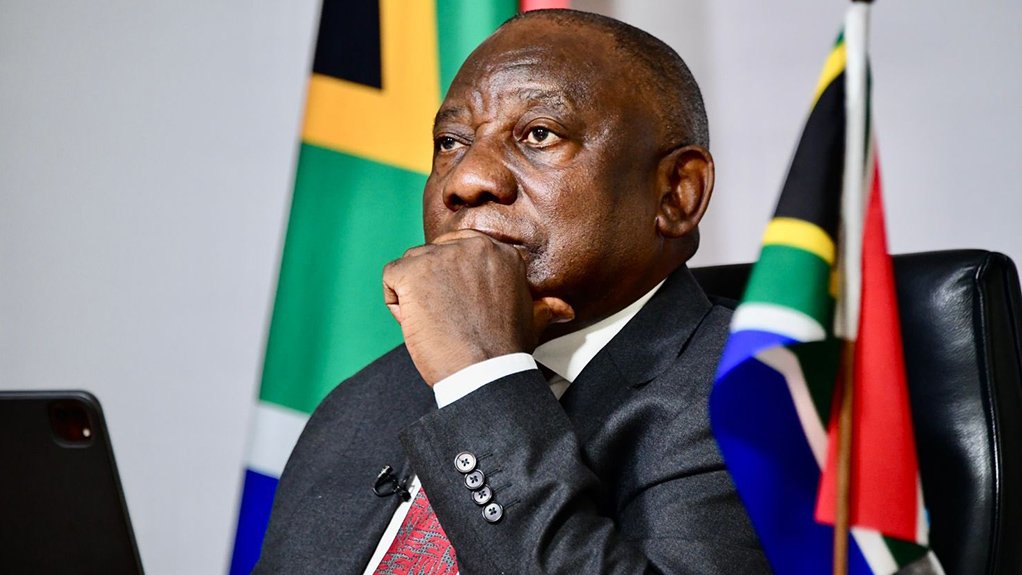/ MEDIA STATEMENT / The content on this page is not written by Polity.org.za, but is supplied by third parties. This content does not constitute news reporting by Polity.org.za.
Dear Fellow South African,
Last week we commemorated the Women’s March to the Union Buildings on 9 August 1956. This historic protest by more than 20,000 South African women was a response to the cruel and dehumanising practices of the apartheid regime.
The march was also a protest against economic injustice.
As one of the regime’s so-called ‘influx control’ measures, the pass laws restricted freedom of movement for black men, thereby curtailing their ability to work. The decision to extend the pass laws to black women would have effectively shut off all remaining opportunities for black families to earn a livelihood.
This spurred the pioneers of 1956 to march on the seat of apartheid power.
The significance of the 1956 Women’s March is enduring, not least of all because it underscored the centrality of women’s economic empowerment to the broader effort to achieve gender equality.
Thirty years into democracy we have made impressive strides in advancing gender equality across society, but we still have a long way to go in broadening women’s economic participation.
This is borne out by a recently published Gallup study titled ‘Gender Power in Africa’. The report analyses the disparities and imbalances that shape the lives of women in five African countries, including South Africa.
South Africa ranks the highest of the countries surveyed with respect to the rate of female participation in political decision-making, low rates of child marriage, and the participation and completion rates of girls in primary and secondary education.
However, of the countries surveyed, South Africa has the highest rate of unemployed women and women not in the workforce. The percentage of South African women considered to be self-employed or entrepreneurs is the lowest, at 5%. In this respect, we lag behind the rest of the continent. According to the World Economic Forum, women constitute 58% of self-employed people across Africa.
In a country such as ours, with a high unemployment rate, entrepreneurship is an important tool to empower more women and broaden their participation in the economy. This includes in the informal sector, which accounts for 18% of total employment in the country.
Through its various departments and entities, the state provides financial support to women to enable them to start their own businesses and to sustain existing businesses. Women-owned businesses are also able to access training in business and project management, IT and other skills.
We have set a target to allocate at least 40% of public procurement spend to women-owned businesses. In 2021, we launched a Women’s Economic Assembly to enable women-owned enterprises to participate in local industry value chains. Since its inception this programme has yielded promising results in a number of key economic sectors, notably the automotive sector.
We are also striving to expand women’s access to economic activity through land ownership, enabling female farmers to own land through the state’s land redistribution programme and supporting them with equipment and other agricultural inputs.
From citrus farmers in North West to cooperatives making affordable school furniture in KwaZulu-Natal, to cosmetics companies and tech start-ups in the Western Cape, all across the country women-owned enterprises are benefiting from an integrated approach to supporting small businesses.
The private sector is playing an important role in guiding these entrepreneurship journeys through start-up incubators, women entrepreneurship awards and programmes such as the Youth Employment Service.
With the help of the Social Employment Fund and others, government is enabling women entrepreneurs to employ workers and provide mentorship to trainees.
There is much more that the private sector can do. Access to financial resources, including credit lines, is vital to the viability of women-owned businesses. Another important area is access to tools of financial inclusion like bank accounts and mobile money and payment technologies. It will be critical to broaden the reach of financial services to include women in the informal sector and in rural areas.
Empowering women contributes to thriving economies, spurs productivity and boosts economic growth.
With greater collaboration between government and business, together with the support of labour and civil society, we can use entrepreneurship to lift more women out of poverty. We can create more jobs for women and help more women secure their financial freedom.
The achievement of economic freedom for South Africa’s women would be the most fitting tribute to the courageous women who marched on the Union Buildings in 1956.
With best regards,
Issued by the Presidency
EMAIL THIS ARTICLE SAVE THIS ARTICLE ARTICLE ENQUIRY
To subscribe email subscriptions@creamermedia.co.za or click here
To advertise email advertising@creamermedia.co.za or click here











